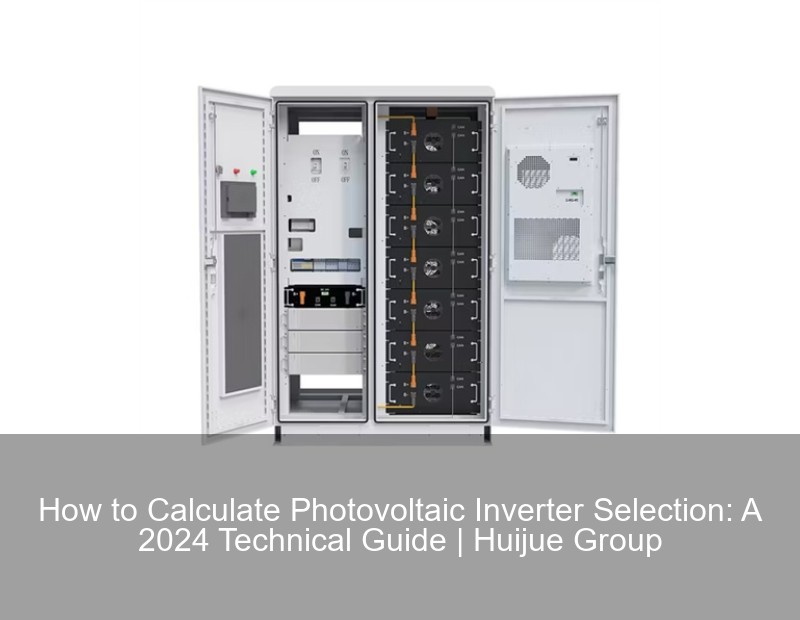How to Calculate Photovoltaic Inverter Selection: A 2024 Technical Guide

Why Proper Inverter Sizing Impacts Your Solar ROI (And How to Get It Right)
Did you know that 23% of underperforming solar installations trace their issues back to incorrect photovoltaic inverter selection? As solar adoption surges globally (the IEA reports a 35% year-over-year increase in residential installations), understanding inverter calculations has never been more critical.
The High Cost of Guesswork
Last month, a Texas homeowner discovered their 10kW system was producing 18% less energy than projected. The culprit? An undersized inverter struggling with voltage fluctuations during peak daylight hours. This isn't just about technical specs – it's about real financial losses.
| Error Type | Energy Loss | Payback Period Extension |
|---|---|---|
| Undersized Inverter | 15-25% | 2.8 years |
| Input Voltage Mismatch | 8-12% | 1.5 years |
4 Non-Negotiable Selection Factors
When calculating photovoltaic inverter needs, prioritize these elements:
- System Voltage Window: Most modern inverters handle 150-850V DC inputs, but your panels' temperature-adjusted voltage range is key
- Peak Power Tracking: Look for inverters with ≥99% MPPT efficiency – the difference between "good" and optimal production
- Clipping Ratio: Industry best practice recommends 1.2:1 DC-to-AC ratio (10kW DC array → 8.33kW AC inverter)
- Future-Proofing: 72% of installers now recommend inverters with 20%+ oversizing capacity for panel upgrades
Real-World Calculation Walkthrough
Let's break down a 7.6kW residential system:
- Panel specs: 20 × 380W modules (Vmp 40.7V, Imp 9.35A)
- String configuration: 10 panels per string (40.7V × 10 = 407V)
- Total DC input: 407V × 9.35A × 2 strings = 7,613W
- Inverter choice: 7.6kW model with 250-800V DC input range matches perfectly
Emerging Tech You Can't Ignore
The new Huawei SUN2000-10KTL-M3 demonstrates next-gen features changing the game:
- 98.6% CEC efficiency rating
- 12 MPP trackers for complex roof layouts
- Integrated arc fault detection (AFCI)
"Modern inverters aren't just converters – they're intelligent energy managers," notes the 2024 Solar Tech Review. "Proper selection now impacts everything from grid stability to EV charging optimization."
When to Consult Professionals
While online calculators provide ballpark estimates, complex scenarios demand expertise:
- Systems with multiple roof orientations
- Commercial installations >100kW
- Hybrid systems with battery storage
Contact Us
Submit a solar project enquiry,Our solar experts will guide you in your solar journey.